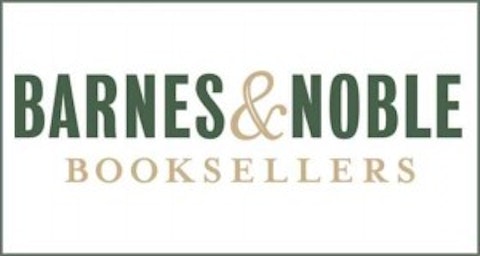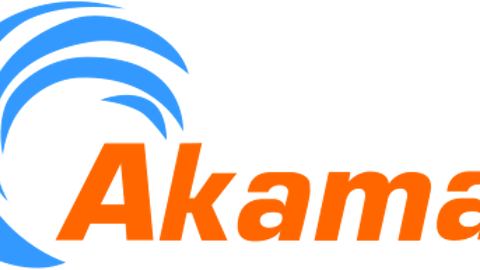
I’ll save you the need to read the rest of this article and sum it up in one word: no.
But since you are still reading, I’ll provide with you some personal insight, and some concrete facts.
Nook vs. Kindle
First, a disclaimer. I am an author with four self-published e-books, and one commercially published book, out right now. My books are available on both Amazon.com, Inc. (NASDAQ:AMZN) and Barnes & Noble, Inc. (NYSE:BKS) online. I don’t tell you this to try and sell you a book, but to provide another point of view on the bookselling business.
As many investors know, Amazon.com, Inc. (NASDAQ:AMZN) does not release sales figures for its e-books or Kindles in a way that can be easily compared to Barnes & Noble, Inc. (NYSE:BKS)’s Nook. The company does not share the revenue or net profit on e-books or Kindles, leaving investors to often wonder how well the segment is doing, when the numbers at Barnes & Noble are not promising.
I don’t need Amazon.com, Inc. (NASDAQ:AMZN) to release sales figures on the Kindle or its e-book segment in order to know Amazon is more successful than Barnes & Noble at selling books. I actively track my book sales, as well as actively market and promote my books. My books are equally marketed and promoted on each site.
My Amazon book sales are consistently 10:1 greater than my Nook sales, for every book, every month. Even when I have attempted to promote Nook sales, Kindle sales are far greater. I’ve discussed this with other authors as well, and all of them see similar results. It may be only anecdotal evidence, but it is all I need to know that Kindle outsells Nook.
Second, disclaimer: I own a Nook Color. I don’t love it, but I love the idea of it. I’m an avid reader. I’m a bookworm. I’m a book nerd who wants to see a bookstore succeed. When Nooks were invented and released, I ran out and bought one as fast as I could. I loved the idea of hundreds of books in one place that was small enough to fit in my bag and could go everywhere with me. But the glitches, ridiculously short battery life, and painfully slow speed of the Nook Color irritate me so much I find I rarely carry it anywhere at all.
So please, understand, it pains me to say that, no, I do not expect to see Barnes & Noble, Inc. (NYSE:BKS) survive the next few years.
The fine print
Barnes & Noble announced in June that it will no longer produce new tablet devices, and instead will transition to a “partnership model” on color tablets (like my Nook Color). Barnes & Noble will make the black-and-white “readers,” while a partner company makes the tablets. Accepting the failure of the Nook is a big step for the company, but it isn’t quite enough to save it.
The Barnes & Noble Nook segment went down with dramatic, flaming glory, with a $475 million loss during fiscal 2013, or nearly 82% more than the year previous.
Barnes & Noble, Inc. (NYSE:BKS)’s consolidated fourth-quarter revenue decreased 7.4% to $1.3 billion. The company saw a consolidated fourth-quarter net loss of $118.6 million, or more than double the previous year’s $56.9 million loss. Fourth-quarter net losses per share, however, came in at $2.11, compared to a net loss of $1.06 per share during the company’s fiscal 2012.
On the bright side, the company’s core retail segment earnings increased 16% for fiscal year 2013 to $374 million. But EBITDA fell 23.9% to $51 million. Retail revenue for the fourth quarter dropped 10% to $948 million. Same-store sales fell 8.8%, which was attributed to “lower Nook unit volume and a stronger title lineup in the prior year period including The Hunger Games and Fifty Shades of Grey trilogies.”
Nook brought in revenues of $776 million for the full year, 16.8% less compared to a year ago. Digital (e-book) sales increased 16.2% for the full year, but they fell 8.9% for the fourth quarter, which the company also attributed to not having a great, popular book series on hand.
Read a good book lately?
And that, ultimately, is what concerns me the most about Barnes & Noble. And I say this not as an author, but as an investor and avid reader. There are currently more book titles available than ever before. With self-publishing producing more and more books every day, and the advent of e-readers allowing and encouraging avid readers to repurchase classic and past titles, there are an endless number of books available. And with all of those thousands of new titles being published daily, and the entire history of the written word available, Barnes & Noble, Inc. (NYSE:BKS) wants to blame decreased sales on the lack of good titles available?
According to a survey by the Pew Research Center, in mid-December 2011, 17% of American adults had reported they read an e-book in the previous year; by February 2012, the share increased to 21%. The average reader of e-books has read 24 books in the past 12 months, compared with an average of 15 books by a non-e-book consumer. The study also showed that there are four times more people reading e-books on a typical day now than there were two years ago.



